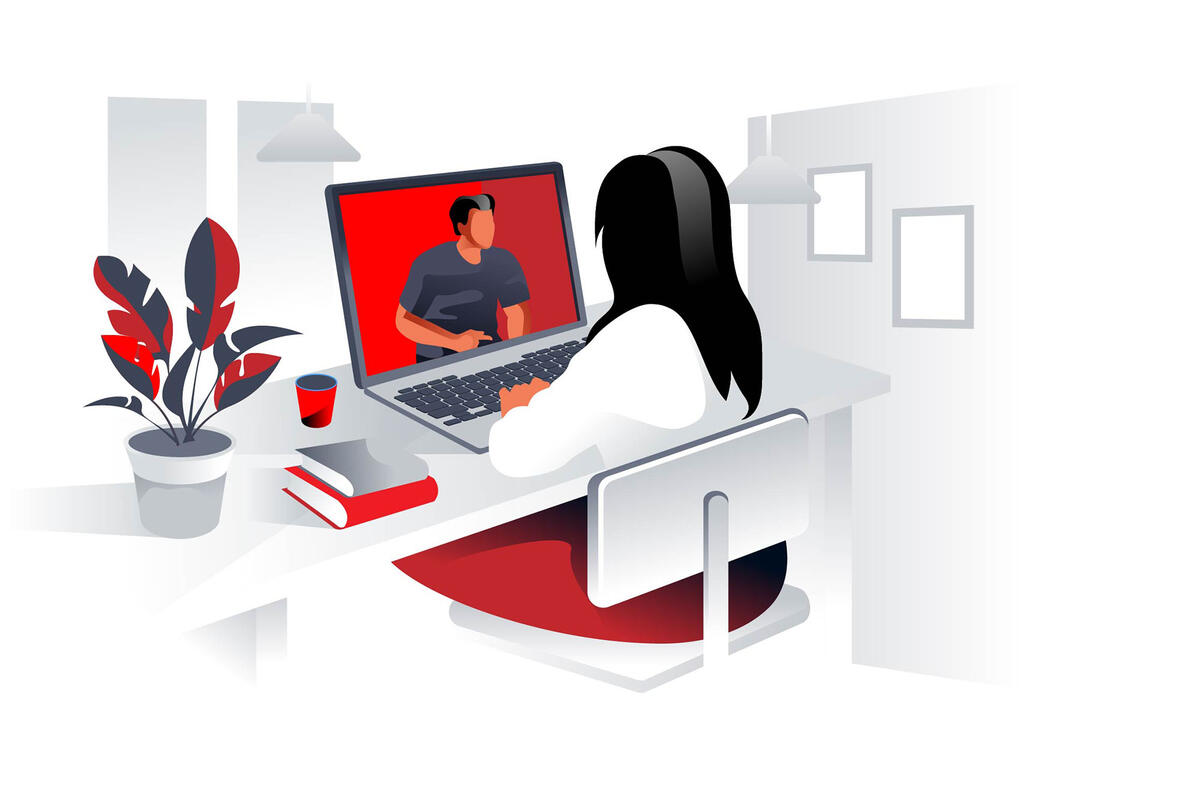Whether it’s time management, delegation, or having tough conversations, we all have areas in which we’d like to improve. That rings true for those in leadership roles as well as those aspiring to get to the next level. Even the smallest changes, such as adding regularly occurring meetings with peers to your calendar, can improve relationships and contribute to success in work and life.
Now, UNLV has one more tool to help employees identify such tactics: leadership coaching.
“I heard about leadership coaches from a few colleagues who are more advanced in their careers than I am,” said Nicholle Zarkower, executive director of strategy and communication for the CFO’s office. “They all affirmed it was an invaluable opportunity to fine-tune their goals and chart their career path.”
The Pilot Program Experience
In 2018, Zarkower and a group of her Business Affairs colleagues volunteered to be part of a pilot group for a universitywide leadership coaching program initiated by Jean Vock, Business Affairs senior vice president/CFO, and Erin Collier, director of organizational development. The goal: collect information and use it to develop a program that provides UNLV’s current and emerging leaders with opportunities to refine existing skills and acquire new ones.
To get started, each participant was paired with a coach charged with delivering impartial and unbiased feedback. This is one of the main benefits of working with a coach.
“I enjoyed talking candidly with someone who wasn’t involved in my direct work,” said Chris Viton,associate vice president of financial services and controller. “They challenged me without bias or an agenda which in turn, helped me to see myself more clearly.”
After an initial assessment, participants self-reflected to set concrete, measurable goals and worked with their coach on a development plan. They scheduled a series of six one-on-one sessions, usually about two weeks apart, to allow time to take action on their commitments. “You really hold yourself accountable when working with a coach because you know someone is investing in you,” says Zarkower.
Lessons Learned in Coaching
While all of their discoveries were different, by the end of the process, they each implemented key takeaways into their work. “It was eye opening to learn some things I was doing that were counterproductive in regards to time management,” said Viton. “I learned some delegation techniques which have been incredibly helpful,” said Rebecca Barber, associate vice president of financial planning, budget, and analysis.
After the pilot wrapped, Collier got to work applying lessons-learned to the campuswide initiative — UNLV Leadership Coaching Program (LCP). The first order of business was identifying a diverse pool of coaches and creating an interview process through which “coachees” could select their coach. “Participants wanted an opportunity to have conversations with several coaches to find one who best fit their work style and personality,” says Collier. “We cast a wide net during the RFP process and found more than a dozen qualified coaches from a wide variety of backgrounds.”
Once someone expresses interest through an online interest form, Collier matches them with three potential coaches. Next, the participant contacts the coaches for interviews until they make their selection. Since this process is new to most, Collier provides suggested questions to guide these conversations. To add another level of familiarity, most coaches filmed introductory videos, posted on the Leadership Coaching Program web page, so interested participants can learn more about each coach.
Another lesson learned during the pilot program is coaching is not one size fits all. Flexibility is a key component of LCP. Everything, including the number of sessions, topics to explore, goals to set, etc. is tailored to the individual. After meeting and identifying goals, the coach and coachee agree upon a number of sessions they believe will be sufficient to meet those goals. If, as they move along, they need to adjust the number of sessions or anything else, they can do that. Investing in coaching provides support exactly when needed on issues that are most personally and professionally relevant to the coachee.
Launching Campuswide
The UNLV Leadership Coaching Program launched campus-wide in October 2020. It’s open to all UNLV employees who have approval from management in their area. However, making the most of the experience is up to the individual. “You get out of coaching what you put into it,” says Collier. Viton agrees. “It’s critical that the individual and their manager(s) are fully committed to the process. Development takes time and they must have support to be successful.”
In fact, supervisors are an integral part of the process. They participate in setting confidentiality parameters, receive regular progress updates, and provide the coachee with the support they need to achieve their goals. Coachees experience the most success when their supervisors support and encourage their progress.
There’s also a common coaching myth that the pilot group wants to set straight. Coaching is not about disciplinary action, it’s about professional development. “I got started with coaching because I was an outstanding performer, not a troubled performer,” says Barber. “It’s been one of the most positive things I’ve done. I don’t feel I would have been ready to take on this job had I not had prior coaching.”
Mutual trust and vulnerability are essential elements in the coaching relationship. This is obvious for the coachee, as coaching discussions revolve around them, their challenges, and related goals. Trust and vulnerability are also significant issues for the coach. The coach may disclose their own past struggles and challenges in a teaching moment and needs to know that the client will keep these private. Trust is facilitated when confidentiality is agreed and maintained during the coaching engagement.
Get started in the Leadership Coaching Program by first getting approval from your department. Then visit Leadership Coaching Program webpage.



